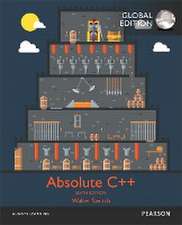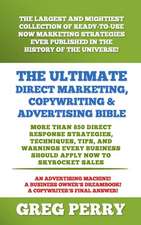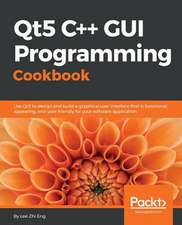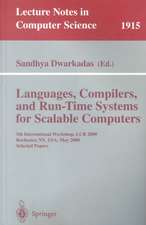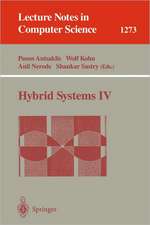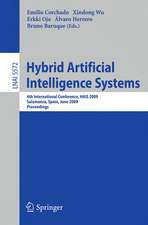C Programming Absolute Beginner's Guide: Absolute Beginner's Guides (Que)
Autor Greg Perry, Dean Milleren Limba Engleză Paperback – 6 aug 2013
C Programming Absolute Beginner's Guide is the fastest way to get comfortable and productive with C11. This friendly, practical book will help the reader do exactly what they want, one incredibly clear and easy step at a time. World-renowned tech tutorial author Greg Perry reveals C11's power, and helps the reader quickly take advantage of it. He provides step-by-step instructions for every task requiring more than one step, many code samples, and screenshots guiding through complex processes. This guide including how to organize a program, store and display data, and work with variables, operators, I/O, pointers, arrays, and functions. Perry presents updated information on the latest C compilers for Windows, OS X, and Linux, as well as valuable new material on C programming for mobile and game development.
Preț: 142.35 lei
Preț vechi: 177.93 lei
-20% Nou
27.24€ • 28.57$ • 22.68£
Carte disponibilă
Livrare economică 11-25 martie
Livrare express 25 februarie-01 martie pentru 34.17 lei
Specificații
ISBN-10: 0789751984
Pagini: 352
Ilustrații: illustrations (black and white)
Dimensiuni: 178 x 234 x 19 mm
Greutate: 0.54 kg
Ediția:Revised
Editura: Que
Seria Absolute Beginner's Guides (Que)
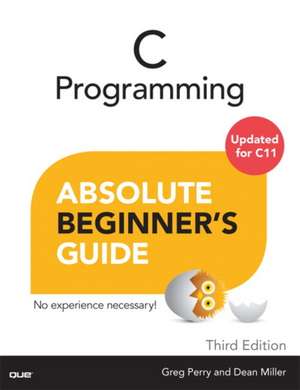


![Absolute Beginner's Guide to Building Robots: Exam 70-294 [With CDROM]](https://i1.books-express.ro/bs/9780789729712/absolute-beginner-s-guide-to-building-robots.jpg)




